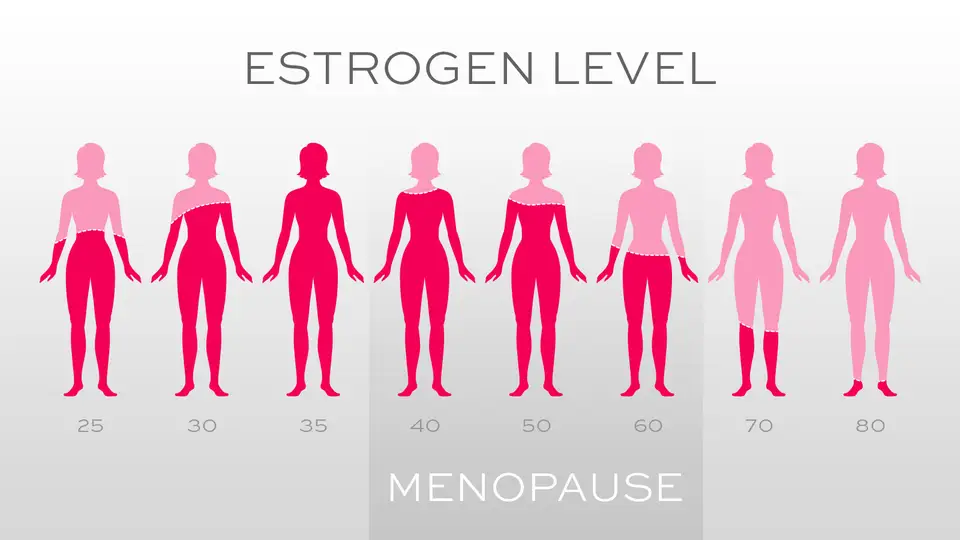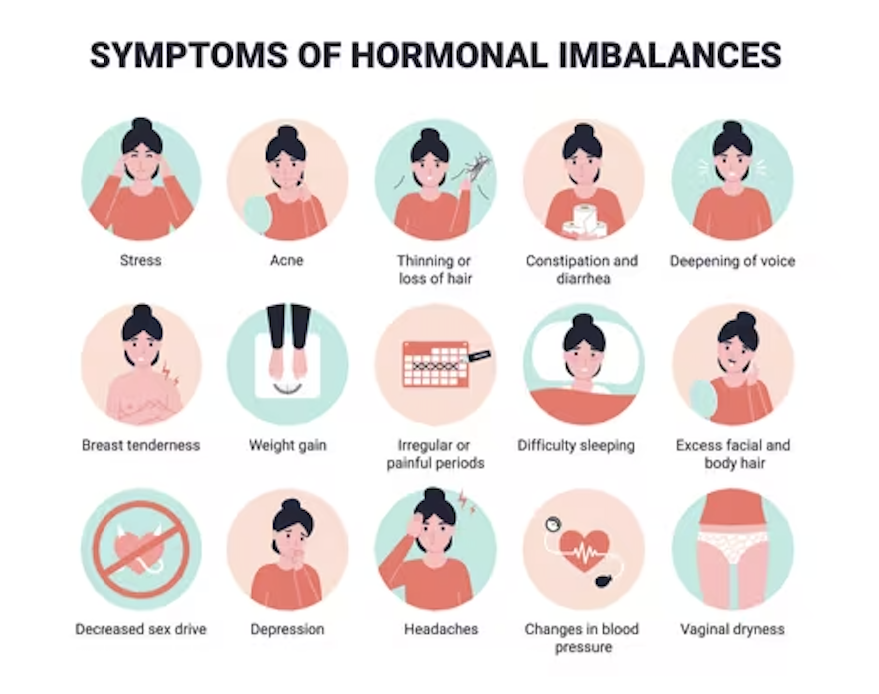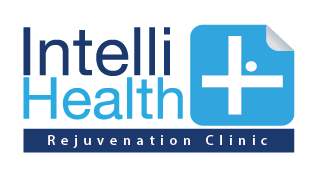Women’s Hormone Test
Women's Hormone Test
Health Check-Up at IntelliHealthPlus Clinic, Bangkok
Hormones are chemical substances produced by glands in the endocrine system and play a crucial role in regulating different bodily functions. Hormone testing is commonly performed to assess hormone imbalances, diagnose certain conditions, monitor fertility treatments, or evaluate overall health.
A women’s hormone test is conducted to assess hormone levels and identify any imbalances or abnormalities that may be contributing to certain health conditions or symptoms. The test may involve measuring specific hormones, such as estrogen, progesterone, testosterone, follicle-stimulating hormone (FSH), luteinizing hormone (LH), thyroid hormones (T3, T4, and TSH), and others, depending on the individual’s symptoms or suspected hormonal issues.
What is involved in a woman's hormone test?
A women’s hormone test involves assessing the levels of various hormones in a woman’s body to evaluate their hormonal balance and function. The specific hormones tested may vary depending on the individual’s symptoms, concerns, and the purpose of the test.
The blood sample can provide valuable information about the levels of hormones that play essential roles in regulating various aspects of a woman’s reproductive health, menstrual cycle, fertility, mood, metabolism, and overall well-being.
The test results can indicate if hormone levels are within the normal range, imbalanced, or significantly deviating from the expected levels. It can also guide the development of appropriate treatment plans, including hormonal therapy, lifestyle modifications, dietary changes, or other interventions to restore hormonal balance and alleviate related symptoms.

What hormones are tested?
The specific hormones tested can vary depending on the purpose of the examination, but commonly measured hormones in women include:
This hormone is primarily responsible for the development and regulation of the female reproductive system and secondary sexual characteristics.
Progesterone helps prepare the uterus for pregnancy and supports a healthy pregnancy.
FSH is involved in the regulation of the menstrual cycle and the development of eggs in the ovaries.
LH works in conjunction with FSH to regulate the menstrual cycle and stimulate ovulation.
Although commonly associated with males, women also produce testosterone, which influences sexual desire and is involved in various physiological processes.
TSH is produced by the pituitary gland and regulates the thyroid gland’s production of thyroid hormones, which are crucial for metabolism, growth, and development.
Prolactin is responsible for stimulating breast milk production after childbirth.
Benefits of having a woman's hormone test:
Hormone testing for women plays a crucial role in assessing hormone levels and imbalances, leading to accurate diagnoses and personalized treatment plans. It enables early detection of conditions, empowers proactive management, and empowers women to prioritize their reproductive health.
Women opt for hormone testing for various reasons, including addressing menstrual irregularities, fertility concerns, evaluating menopause, managing polycystic ovary syndrome (PCOS), thyroid disorders, mood disturbances, and other endocrine-related conditions. Hormone testing offers numerous advantages, delivering valuable insights into hormonal imbalances, facilitating precise diagnoses, and guiding appropriate treatment plans. Here are some key benefits:
1. Accurate diagnosis:
Hormone testing provides healthcare professionals with essential information to accurately diagnose hormonal imbalances and related conditions. This ensures that women receive appropriate and targeted care based on their specific hormone profiles.
2. Tailored treatment plans:
With the insights gained from hormone testing, healthcare providers can develop personalized treatment plans that address the specific hormone imbalances and symptoms. This may include hormone replacement therapy, lifestyle modifications, dietary changes, or other interventions designed to restore hormonal balance and improve overall well-being.
3. Early detection and proactive management:
Hormone testing enables early detection of conditions like PCOS, thyroid disorders, or hormonal abnormalities. Early identification allows for prompt intervention and proactive management to prevent potential complications and mitigate symptoms effectively.
4. Enhanced reproductive health:
By identifying hormone imbalances, hormone testing assists in optimizing women’s reproductive health. It provides the opportunity to address menstrual irregularities, improve fertility, manage menopausal symptoms, and alleviate conditions affecting the endocrine system, thereby enhancing overall reproductive well-being.
Overall, hormone testing for women offers valuable insights into hormone levels and imbalances, enabling accurate diagnoses, tailored treatment plans, early detection, proactive management, and overall empowerment. It is a vital tool for optimizing reproductive health and improving the quality of life for women.
Symptoms of hormone imbalances in women:
Women’s hormone imbalances can manifest through a variety of symptoms that can affect different aspects of physical and emotional well-being. If you suspect a hormone imbalance, a Hormone test is a valuable method to determine your diagnosis. Here are some common symptoms of women’s hormone imbalances:

Changes in the length, duration, or regularity of menstrual periods.
Frequent changes in mood, including irritability, depression, or anxiety.
Sudden episodes of intense heat, often accompanied by sweating, particularly during perimenopause and menopause.
Persistent tiredness or low energy levels.
Difficulty falling asleep, staying asleep, or experiencing poor-quality sleep.
Unexplained weight gain or difficulty losing weight.
Decreased sexual desire or changes in sexual function.
Thinning hair or increased hair shedding.
Increased frequency or severity of acne breakouts or other skin problems.
Digestive problems such as bloating, constipation, or diarrhea.
Common causes of hormone imbalances in women:
Hormone imbalances in women can have various underlying causes. Here are some common factors that can contribute to hormonal imbalances:
Hormonal fluctuations occur naturally at different stages of a woman’s life. For example, during puberty, menstrual cycles may take time to regulate. Perimenopause and menopause bring significant hormonal changes, leading to symptoms like hot flashes and mood swings.
PCOS is a hormonal disorder characterized by imbalances in reproductive hormones, particularly increased levels of androgens (male hormones). This condition can lead to irregular menstrual cycles, ovarian cysts, acne, and excessive hair growth.
Some women may experience hormone imbalances as a side effect of hormonal contraceptives, such as birth control pills, patches, or hormonal IUDs. These methods introduce synthetic hormones into the body, which can disrupt the natural hormonal balance.
Chronic stress can affect the body’s hormone production and regulation, leading to imbalances. Stress activates the release of cortisol, often referred to as the “stress hormone,” which can interfere with the normal functioning of other hormones.
Conditions like hypothyroidism (underactive thyroid) or hyperthyroidism (overactive thyroid) can disrupt the balance of thyroid hormones. The thyroid gland plays a crucial role in regulating metabolism and influencing other hormone systems.
Excess body fat can lead to imbalances in hormones, particularly estrogen. Fat cells can produce estrogen, and higher levels of fat can result in higher estrogen levels, which can disrupt hormonal equilibrium.
Unhealthy lifestyle choices, such as poor diet, lack of physical activity, inadequate sleep, and excessive alcohol or caffeine consumption, can contribute to hormonal imbalances.
Conditions such as diabetes, adrenal disorders, pituitary gland disorders, and ovarian or uterine tumors can affect hormone production and balance.
Certain medications, such as corticosteroids, hormone therapies, and some cancer treatments, can cause hormone imbalances as a side effect.
Exposure to certain environmental toxins, chemicals, or endocrine-disrupting substances found in pesticides, plastics, and personal care products may interfere with hormone regulation.
How to prevent hormone imbalances in women:
While it may not always be possible to prevent women’s hormone imbalances completely, but there are several lifestyle practices and strategies that can help promote hormonal balance and overall well-being. Here are some recommendations:
- Maintain a balanced diet
- Regular exercise
- Manage stress
- Get enough sleep
- Maintain healthy weight
- Limit alcohol and caffeine
- Avoid exposure to toxins
- Hormonal birth control
- Regular check-ups
- Seek professional guidance
It’s important to note that hormonal imbalances can be complex, and sometimes the exact cause may not be easily identifiable. If you suspect a hormone imbalance or are experiencing persistent symptoms, it is advisable to consult with a healthcare professional and arrange a hormone test for an accurate diagnosis and appropriate treatment.
How long does a woman's hormone test take?
The test involves taking a blood sample, which only takes a few minutes. After collecting the sample, it is submitted to a laboratory for examination. Depending on the laboratory’s turnaround time, it may take several days to a week to receive the test results.
when should women get hormone test?
If you are suffering from hormonal imbalances, a hormone test may be recommended as It can help women who have irregular menstrual cycles, fertility problems, menopausal symptoms, or suspected hormonal disorders such polycystic ovarian syndrome (PCOS) or thyroid dysfunction.
Frequently Asked Questions:
What hormones are typically measured in a women's hormone test?
How is a women's hormone test performed?
What can a women's hormone test diagnose?
What are the treatment options based on the results of a women's hormone test?
An Individual's Specialist Tests
Health Check Up for Women
Specialist Tests
Why Us..
Health Check-Ups at IntelliHealthPlus Clinic By StemCells21
FREE CONSULTATION
Fast Track
1-2 Days Test Results
Health Check-ups at IntelliHealth+
At IntelliHealthplus Clinic, we believe in the importance of proactive healthcare and empowering our patients to take control of their health.
Our health check-up package provides valuable insights into your health status, and our team of experienced physicians will work with you to develop a personalized plan to optimize your health and well-being.
In our practice we apply evidence-based methods that have been practiced and refined for over 10 years in our operations, offering advanced techniques for treating various conditions.
If you would like to find out more or speak to one of our specialist contact us today to book your FREE consultation.
Book a FREE Consultation Now
IH+ Contact Form
Contact our international team of medical professionals with language services available in English, Thai, Arabic, Chinese, Spanish, and Russian.
Please indicate your preferred language and we will do our best to accommodate your request.


